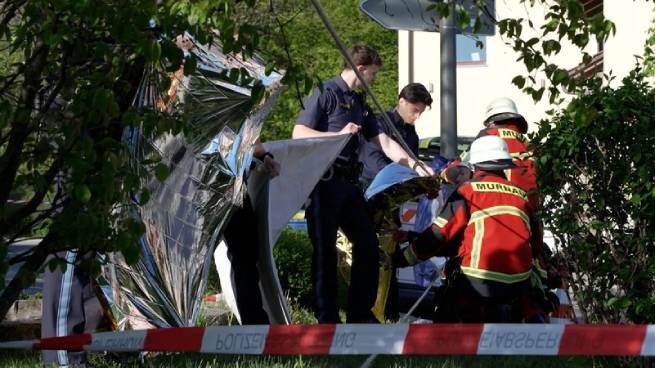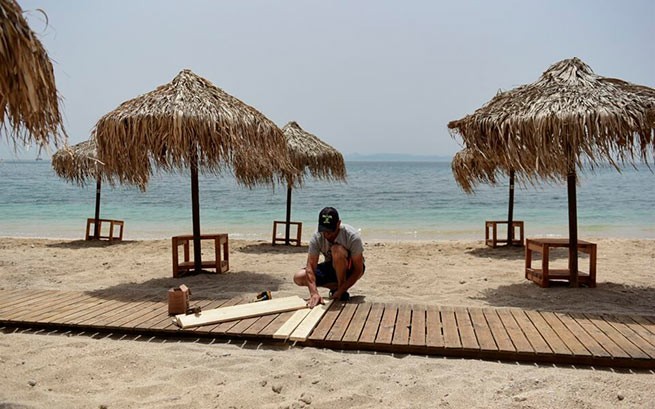Edition Politico writes about the mass discrimination of Russian students in Europe for political reasons. Many students are forced to leave European universities and return home. At the same time, the West is trying to make them “activists of regime change.”
Summer is here and exams are over. This is a great time to study at a university in Europe, unless you are from Russia. After the Kremlin’s war with Ukraine that began in February, Russian students at European universities found themselves in a quandary. On the one hand, some students report an increase in the level of Russophobia in the West. On the other hand, Moscow is trying to encourage them to return home to study. All the while, European universities have oscillated between helping students and making their problems worse.
“Not many people know I’m Russian, usually I don’t tell people my nationality,” says a 20-year-old student from Moscow at the University of Exeter in the UK, who asked to remain anonymous. “If I say something bad about Russia, I will have problems there. If I say something good about Russia, I will have problems here,” the student added.
At some universities, Russian students say Russophobia has become almost normalized, while others accuse the universities of actively promoting discrimination.
A 20-year-old Siberian student studying at Adam Mickiewicz University in Poznań in western Poland, who also wished to remain anonymous, said she was “very shocked” to hear a professor tell his students that Russophobia was “the most appropriate response” to war. “I left that audience,” she said. POLITICO was unable to contact the professor to get a response to the student’s application.
Elena Ledneva, 33, applied to the University of West London for a master’s program in luxury hospitality management after moving to London from the Samara region in Russia last year. To her surprise, the university turned her down, saying in an email seen by POLITICO at the end of May that the decision had been made “in response to recent events and the situation in Ukraine.”
“It was very unpleasant because I have no influence on what is happening in the world right now,” Ledneva said, adding that she was “categorically against” Russia’s invasion of Ukraine. “I [просто] I want to learn, do good and be useful here in the UK.” In response to the allegations, a spokesman for the University of West London said the email was sent “in error” and “due to an internal miscommunication”.
The University of Tartu in Estonia sparked controversy after announcing in March that it would ban admission to all prospective applicants from Russia, something the university’s vice-chancellor later defended on “security” grounds.
Mikhail Suslov, an associate professor at the University of Copenhagen who studies the Russian diaspora, argues that any academic discrimination is counterproductive. He said it risked playing into the hands of the Kremlin, which has long used the propaganda line that Russians are being unfairly persecuted.
But universities have mostly tried to provide support, and such cases are rare, said Michael Gaebel, director of the European University Association, which represents more than 850 universities across Europe. “Attention is really focused on Ukrainian students, but in this sector we see a growing awareness that we must take care of our Russian counterparts in Europe,” he said.
A second student at Adam Mickiewicz University, a 21-year-old Siberian who asked not to be identified, says she felt supported. Having arrived in Poland on an exchange program the day before the start of the war, with only 300 euros, she soon found herself unable to withdraw her savings after the country EU disconnected Russia from the SWIFT payment system.
But the university intervened to help this student. She said they provided her with visa support as well as a monthly stipend of 1,000 złoty (€212) after her accounts were frozen.
Every year more than 48,000 Russians study abroad, most of them in Germany, the Czech Republic, Great Britain, France and Finland. Marketa Martinkova, Vice-Chancellor of Charles University in Prague, which has 1,500 Russian students, said the institution had made it clear it would not tolerate Russophobia after some Russian students complained of prejudice. “We don’t judge our students – we just try to support them,” she said. “We emphasize that we do not support any action based on the principle of collective guilt.”
But the Kremlin seized on allegations of discrimination to instill fear among Russian students and persuade them to return home. At the end of February, Tatyana Moskalkova, Ombudsman for Human Rights in Russia, unsubstantiated* stated that Russian students were being expelled from European universities. Then the Ministry of Education of the Russian Federation announced that those who faced “infringement of their rights” would be granted automatic admission to the best universities in the country if they returned home.
Anthropology student at Adam Mickiewicz University said that representatives of her university in Russia called her 10 times in the first month of the war and eventually convinced her to return, despite the support she received and the fact that she wanted to stay in Poland.
Suslov argues that this is because, ultimately, students pose an existential threat to the Putin regime, and the Kremlin needs them to be contained in a controlled information environment. “The Russian political elite sees the Russian diaspora as a potential competitor and potential breeding ground for anti-Kremlin dissidents,” he said, adding that cultural exchange is also important because it counters the state’s narrative of Russians having “different”, Western values.
Can today’s Russian students become agents of regime change tomorrow? The Kremlin is doing everything possible to undermine this idea.
* At the expense of the lack of evidence of the facts provided by Moskalkova, Politico is traditionally disingenuous. Our edition can give examples, incl. in Europe, and even in Greece, traditionally tolerant of Russians, when students from the Russian Federation had problems associated with Russophobia, and they were forced to leave for their homeland.







More Stories
Ukrainians died in Germany, a Russian is suspected of murder
Belarus is ready to fight, having adopted a new doctrine
IMF: "Huge US debt poses serious risk to global economy"